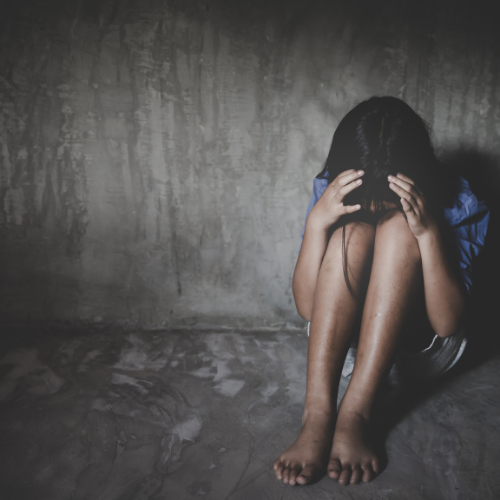
Trauma Counselling and Psychotherapy - Aberdeen
“Trauma is a wordless story our body tells itself about what is safe and what is a threat”
— Resmaa Menakem
What is Trauma?
Going through very stressful, frightening or distressing events is sometimes called trauma. Potentially traumatic events are defined as events that are both powerful and upsetting that intrude into the daily life. Generally speaking, potentially traumatic events involve a major threat to ones psychological and physical well-being.
The impact of a potentially traumatic event may be related to the mental and physical health of the person, past traumatic experiences, presence of coping skills, and level of social and emotional support at the time of the potentially traumatic event. These events may have very little impact on one individual but may lead to a significant amount of distress in another.
What is a potentially traumatic event?
Potentially traumatic events can be caused by a single occasion, or from ongoing relentless stresses. A potentially traumatic event is more prone to leave an individual with longer-lasting emotional and psychological trauma if:
The individual was unprepared for the event
The event occurred out of the blue
The person felt powerless to prevent the event
The event occurred repeatedly (such as childhood abuse)
If the event involved extreme cruelty
If the event occurred during the childhood years
Commonly overlooked causes of potential emotional and psychological trauma can also include:
Breakup or divorce in a significant relationship
Significantly humiliating experience
Surgery
Falls or injuries due to sports
Sudden, unexpected death of a loved one
Diagnosis of a life-threatening or disabling condition
Adverse Childhood Experiences*
*Adverse Childhood Experiences (also known as ACEs) these are stressful or difficult experiences in childhood, including sexual, physical or emotional abuse or neglect and cruelty. Research has shown links between these types of experiences and both physical and mental health problems.
What are the different types of Trauma?
-
PTSD is a mental health condition caused by a person being exposed to trauma or multiple accounts of traumatic events. However, not all traumatic experiences will develop into PTSD. Trauma can and will affect us all differently.
You are likely to relive the experience, you may suffer from flashbacks and nightmares. You may also later develop complex PTSD. People with PTSD may feel constantly stressed, fearful and easily irritated, as well as an over all sense and feelings of emotional and psychological distress. Symptom’s of PTSD may prevent you from normal functioning. PTSD is usually diagnosed if the symptoms persist for more than four weeks and longer.
-
Acute Stress Disorder can be mistaken for PTSD as they share many similarities, however, ASD is an initial response to a traumatic event. ASD is diagnosed when symptoms occur within three to thirty days after the traumatic incident.
Symptoms can (like PTSD) include disturbing memories, feeling numb, detached and disconnected, issues with concentration, irritability, low mood and avoidance of people, places and feelings. Some people can also suffer from guilt, they may feel responsible or feel they could have stopped the traumatic incident from occurring. They may also feel shame and and are unable to move on.
-
Developmental trauma can also be seen as childhood trauma, or events that happen to us in our early childhood. These events will/may effect us developmentally. These types of complex traumas will include a wide range of adverse or extreme events such as: neglect, rejection or being abandoned, abused included (sexually, physically or emotionally) also witnessing abuse, or violence as a child.
Individuals who experience developmental trauma are at risk of developing life long complex emotional, cognitive and physical illnesses. Childhood trauma has an affect on healthy brain development, which can lead to the development of childhood neural-developmental disorders. Children often lose their sense of identity and struggle to form healthy attachments as adults.
How Trauma affects us?
Because trauma differs between individuals, according to their subjective experiences. People will react to similar traumatic events differently. In other words, not everyone who experiences a potentially traumatic event will become significantly traumatised. It is also possible for some people to develop post-traumatic stress disorder (PTSD) after being exposed to a traumatic event.
Trauma can include events where you feel frightened, under threat, humiliated, rejected, abandoned, invalidated or unsafe.
Responding and Reacting to a traumatic event!
When left untreated, psychological trauma can be devastating and infiltrate nearly every aspect of an individual’s life. Some of the most common effects of untreated trauma include substance abuse, alcoholism, inability to maintain healthy relationships, constant arguments with loved ones or social withdrawal. It can leave you with feelings of being threatened, depressed or in despair, as well as leading to self-destructive behaviours or creating compulsive behavioural patterns.
If you have been affected by trauma, its important to remember that you survived, however, you are having common, normal psychological and physiological reactions.
How counselling can help?
Talking about your trauma can be difficult and scary, we fully understand that. Our job as therapists is to try to help you make sense of your experiences. We will always provide you with a safe and professional environment. where together we will work through and make sense of your traumatic memories.
This can only happen with your permission. We will never push you if you are not feeling ready. It is important to the process that you are feeling both safe and comfortable to talk about your experiences.
Being able to re-experience and express emotions in a safe and trusting relationship can help you to overcome the overwhelming feelings and emotions that often accompany a trauma survivor.
Together we can work on finding your inner strength and resources and enable you to move forwards in a more positive and healthy direction, living the life you deserve.
We are always here to offer you support
Counselling for Abuse, Childhood Trauma, Sexual Abuse, Physical Abuse.
You can start now to repair the damage and reclaim your life.
See below to make an appointment.






